‘Nurtured in my family’: Jem Cassar-Daley on the secret to her success as a musical artist
She’s the daughter of Aussie music royalty but this rising star has opened up about her family’s secrets.
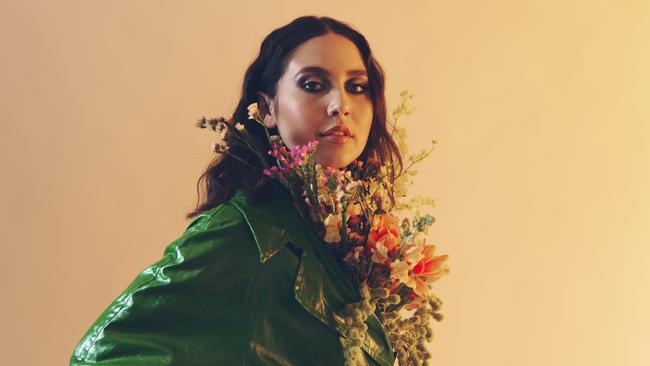
QWeekend
Don't miss out on the headlines from QWeekend. Followed categories will be added to My News.
On the southside of Brisbane in the early 2000s, a young Jem Cassar-Daley, clad in the bright block colours of her primary school uniform, scrapes a piano stool across the floor. She climbs on to it, waiting for her grandmother Dell to join her.
“Before I even had lessons – so I would’ve been four or five – I remember sitting down at the piano at my grandma’s house and she would put little sticky notes on,’’ Jem, now 23, recalls.
“So when it came to getting lessons, I already had a real passion to learn.”
Fifteen years before Jem’s career as an indie-pop singer-songwriter would see her performing alongside Thelma Plum, Busby Marou and King Stingray, she was tackling classical compositions so she could duet with her maternal grandma.
“As I got older, she introduced me to a few classical pieces,” recalls Jem, “and we would both play at the same time, we’d have our hands crossing over. It was so special because she always loved playing as well. She came from a very musical family … she just loved it.”
To anyone familiar with the Cassar-Daley name, Jem’s early years spent in front of a piano might be surprising only because of the choice of instrument.
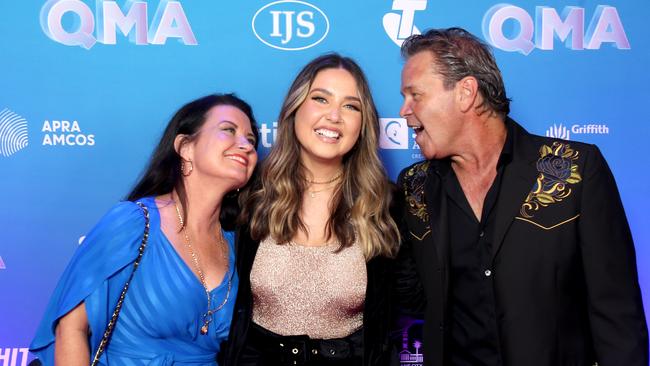
Jem’s dad, songwriter and guitarist Troy Cassar-Daley, is Australian songwriting royalty, a staple of the country music scene and the recipient of 40 Golden Guitar Awards.
Her mum, Brisbane media personality Laurel Edwards, is a singer too and a radio host. She was inducted into the Australian Commercial Radio Awards Hall of Fame last year.
But a knack for spinning a great yarn is a family trait with even deeper roots.
On the new SBS podcast, Grand Gestures, Jem dives into her family history and reveals that the gene for storytelling runs deep on both sides of her family.
Having packed that school uniform away for the summer holidays, young Jem’s hunched over, her eyes scanning the grass and brush around her feet.
All around her, ancient trees sway in the breeze, casting ever-changing shadows on her hunting ground.
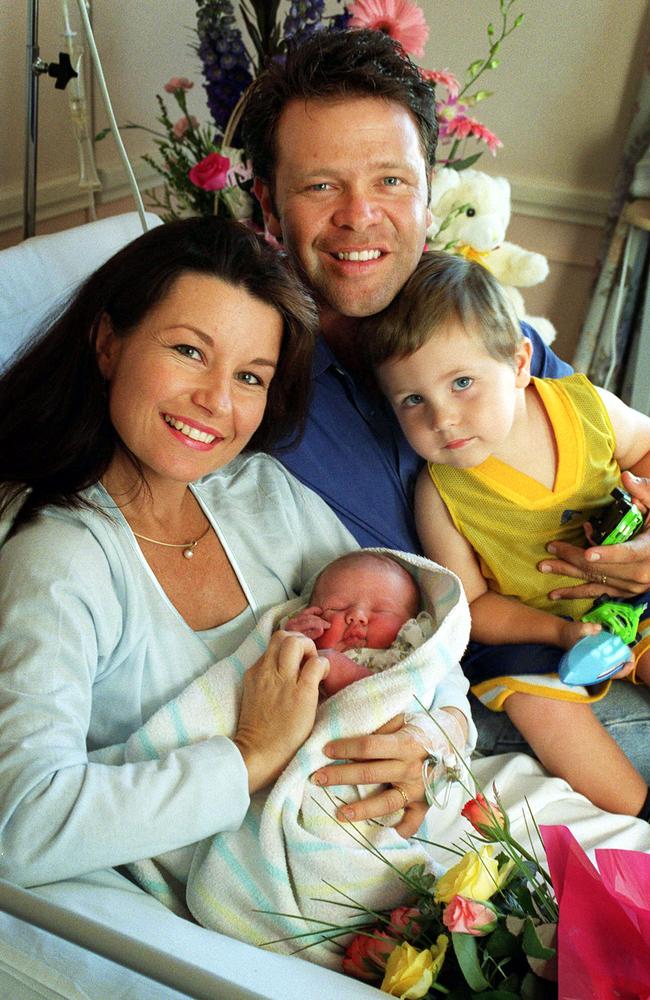
She’s in Grafton, on the property belonging to her other grandma, Troy’s mother Irene Daley. Troy’s teaching Jem to hunt for witchetty grubs.
“It’s a beautiful 93 acre property,” Jem says. “There’s a clearing and a beautiful little home with a few bedrooms. We spent so many years growing up just walking around in the bush. It’s the place my dad spent time with his cousins growing up.”
Jem pauses to reflect. “I think it was really special to be on country as well.”
Irene’s property was a haven not just for its natural beauty and its store of family memories. It was also Bundjalung and Gumbaynggirr land, owned finally by a Bundjalung and Gumbaynggirr woman, and a sharp contrast to Irene’s living arrangements as a child growing up near Coffs Harbour.
“I’ve heard a lot of stories about her life growing up,” says Jem, “and she’s told me a few things about her childhood and her life in regional New South Wales. But before Grafton, I know she and her family were living in tents, just near Coffs Harbour, near the railway lines there. Her father was working there. As an Indigenous family it was really, really difficult for them to be accepted in the community.
“It took legal matters to be able to find a home in Grafton and to be considered as ‘worthy’ to assimilate in town. They had to apply for permission from the council and the government to live on the outskirts of town. That was a family of nine kids, just living and working and doing their thing until they could find a house in Grafton.”
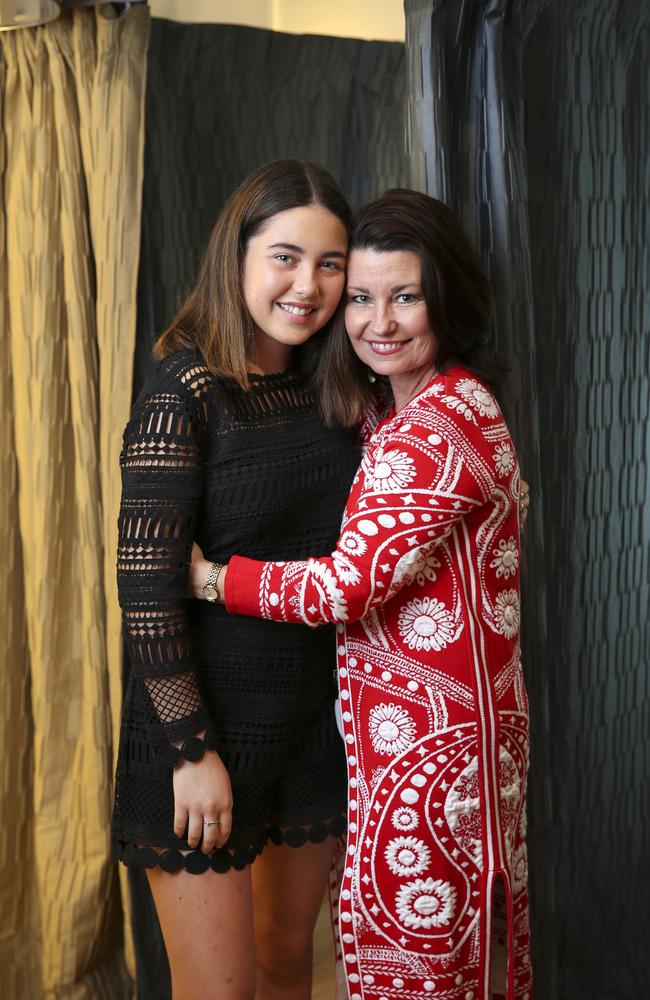
Irene died in 2022, but the home remains in the family.
“We’ve still been able to spend time down there and it’s so special that we still have that connection.”
Irene’s home was another classroom for Jem’s musical education.
“At Christmas gatherings with all the aunties and uncles and cousins, everyone would get a guitar out.
“Music’s such a common thread within my whole family and something we’ve always loved.”
Irene’s catalogue of country music was formative for her son Troy.
“The collection kept growing as my nan got older, and it was full of traditional country music, something that shaped my dad’s love for music as he got older,’’ Jem says. “And I think my nan’s connection to country there really inspired my dad as well.”
Irene was a talented artist who drew on her surroundings for inspiration, so much so that even when her health began to falter, nobody would dare suggest taking her away from her home.
“We were worried about her health and her access to town if something were to happen, but every time we’d go out there, it was like, ‘I don’t know how you would want to leave.’ Just waking up and birds are on the veranda,’’ she says.
“Having that connection to country was something that was really important for her art as well. She had an art room that the sun would come in every morning in this beautiful way. That was where she felt most inspired and at peace.”
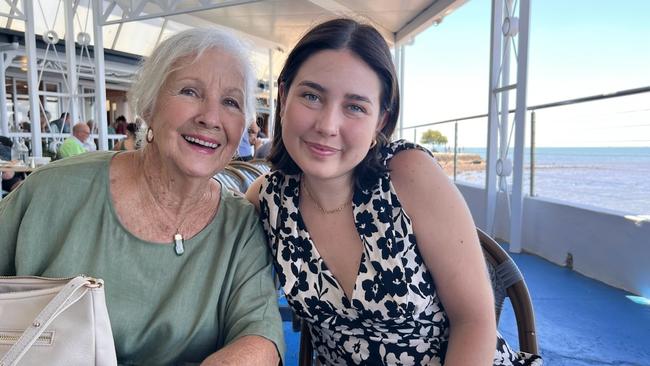
Today, Jem lives in Melbourne, a short flight away from her only living grandparent, Grandma Dell, in Brisbane.
Those early piano duets have paid dividends, with Jem starting her first concerts as headliner this month.
Dell, an avid gardener, misses seeing her granddaughter in person more regularly, but she’ll take the opportunity to play flower health consultant whenever Jem gives her a ring.
“I got into orchids during Covid, when nothing else in the world was going on,” Jem says.
“I had a bit of a collection but I was wondering how on earth you make them flower. So I would send them off to Dr Dell and I’d say, ‘Please, they’re dying, I don’t know what’s going on!’ And she would bring them back a month later, flowering. She’s actually a miracle maker.”
Jem’s particularly taken with one of Dell’s delicate orchids called the Blue Vanda.
“It’s beautiful,” Jem says, before her eyes widen. “But it takes seven years to flower! She just has so much patience, she treats it like a baby.”
This sense of patience, an attentiveness to nature and the ability to accept its processes, is something Jem admires in all of her grandparents.
Dell’s husband Ray was a tradie who loved to fix his family’s broken toys, treasures, and tools. He even fixed one of Troy’s favourite guitars when Jem fell into it as a child, wrestling with her brother.
“Granddad had never really done anything with guitars at all, but he just knew exactly what to do,” Jem says.
“I FaceTimed Dad this morning and he had that guitar in his hand.”
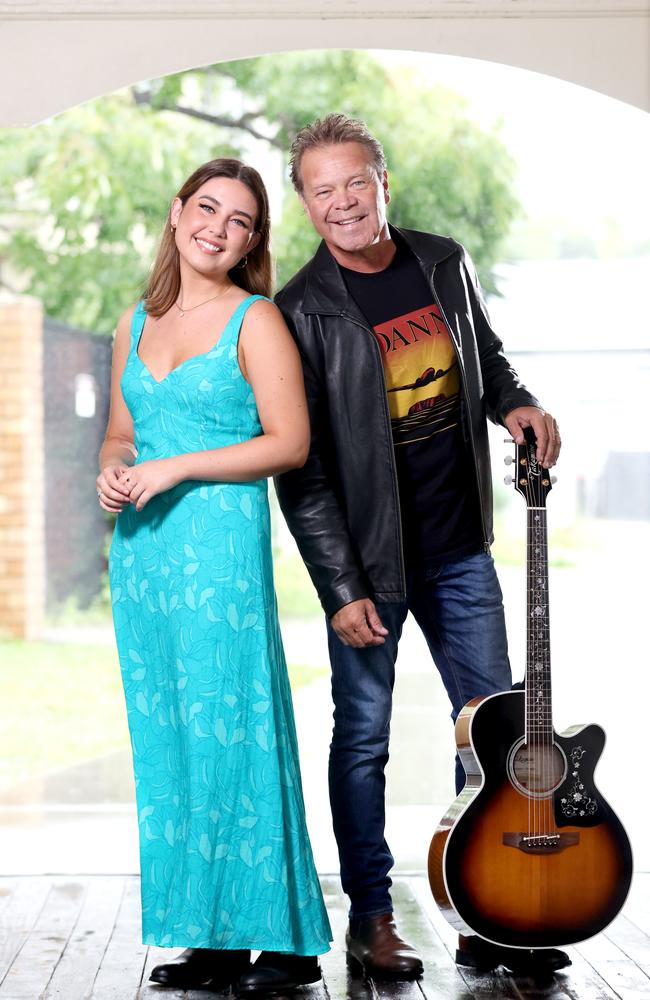
Her other grandfather, Troy’s dad Tony, demonstrated a patience and acceptance across his entire life that still awes Jem.
Born in Malta, Tony escaped the terrors of World War II with his family when he was only eight years old. He lost multiple siblings to infection and disease before the family even left the country.
“His outlook was so positive because he’d already been through it at such a young age,’’ Jem says.
Until very recently, Jem only knew Tony as a lifelong music lover, but after doing some digging, she discovered he was a performer in his day, too.
“I found these photos of him performing on stage,” Jem remembers.
Between a lifetime playing instruments with her parents and Dell, and more recently discovering more and more music in every nook and cranny of her family’s history, Jem has been reflecting on the influence her whole family has had not just on her choice of career, but how she approaches art – and life – in general.
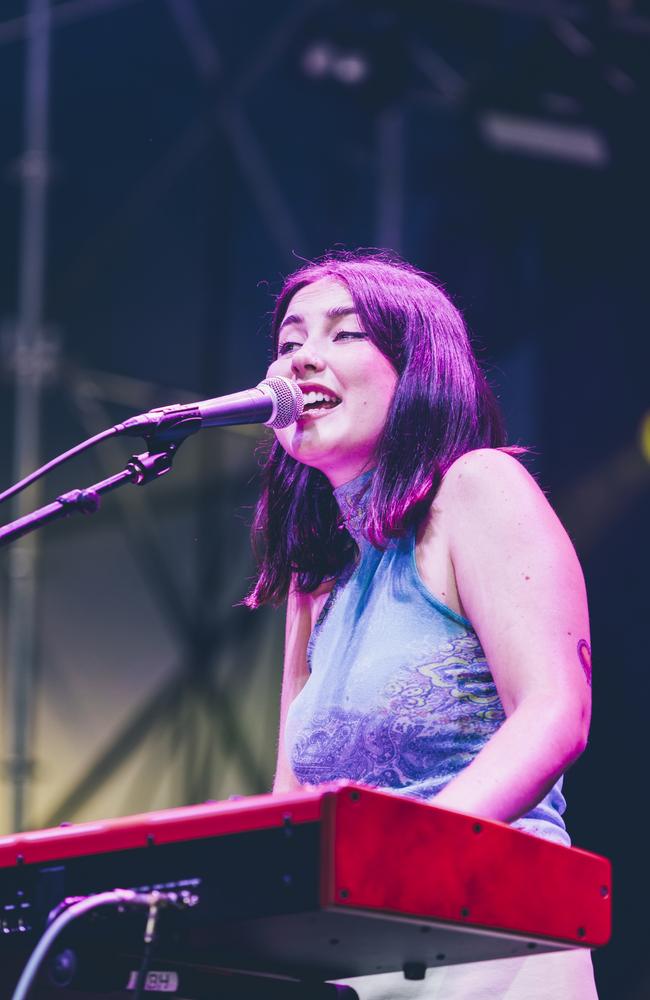
“It showed me and my brother that art was appreciated, that it’s something people are interested in and that’s worthy of pursuing. Whether it’s a hobby or whether it becomes your whole life, it’s something that’s really been nurtured in my family.
“I’m so grateful for that because I see friends in the arts, I see the challenges some of them face with their parents accepting music and art as being something to pursue. I’m just really grateful I’ve had parents and grandparents who’ve said, ‘Just do it’.”




